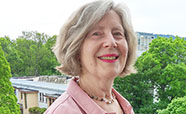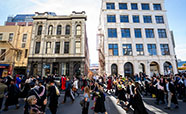Tuesday 13 June 2023 11:30am
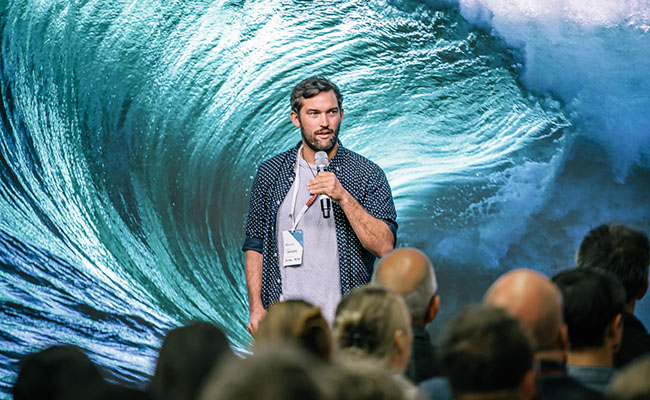
2023 Environmental Hero of the Year, Camden Howitt
The 2023 Environmental Hero of the Year Te Toa Taiao o te Tau, Otago alumnus Camden Howitt, has had a strong connection with te taiao our natural world since childhood. Camden, who graduated from Otago with a BAppSc and BA, is co-founder of the national charity Sustainable Coastlines. He has spent more than a decade designing community environment programmes and driving collaborative solutions around Aotearoa New Zealand and the Pacific, engaging 150,000 volunteers in protecting the places they love.
 What was your reaction to receiving the New Zealander of the Year award for NZ Environmental Hero of the Year, and what does it mean to you?
What was your reaction to receiving the New Zealander of the Year award for NZ Environmental Hero of the Year, and what does it mean to you?
I didn't know how to react. I remember feeling a little overwhelmed. A little embarrassed. But mostly, I felt a huge sense of pride for the work of my team, and for everyone who fights for nature every day. The award is a celebration of the collaborative and cumulative mahi of the entire Sustainable Coastlines whānau, past and present. Solving important, but gnarly, problems can be daunting. It was a good reminder that by working together we can and will succeed. Whether it happens in boardrooms or classrooms, households or town halls, collaboration for nature is needed now more than ever. We can't do this work alone.
 When did your interest in protecting te taiao our natural world begin?
When did your interest in protecting te taiao our natural world begin?
I've loved, connected with, and wanted to protect te taiao for as long as I can remember. I come from an extended family of farmers, and my mum grew up on a dairy farm in Reporoa, in Waikato. Our whānau has always had a strong connection to the land. My parents were both teachers, which meant that growing up, we spent a lot of time together during school holidays. We camped, tramped and explored at beaches, rivers, lakes and forests all around Aotearoa. Childhood summers spent at my grandparents' place in Ōpito Bay, Coromandel Peninsula, sparked my passion for the ocean. I have my parents and grandparents to thank for the countless experiences they gave us connecting to, and falling in love with, our natural world.
 You chose an interesting combination of Design for Technology and Spanish at Otago, what was behind that choice?
You chose an interesting combination of Design for Technology and Spanish at Otago, what was behind that choice?
Creativity and problem-solving have always appealed to me. My Design for Technology degree offered a great mix of creative learning, technical upskilling, and business subjects, and was exactly what I was looking for. This seemingly odd combination set me up well to develop, fund and communicate projects to solve to complex challenges like sustainability.
My interest in Spanish came from a high school football tour to Chile, but my Spanish degree was not much more than a wonderful accident. I took Spanish classes throughout my time in Dunedin purely for the love of the language. After three years, and having completed all the language papers, I looked into an exchange in México. During the process I found that if I finished a few more papers, I'd not only get a degree in Spanish, I would also qualify for a fairly hefty scholarship. I managed to get both.
 Can you tell me about the highlights of your time at Otago – any influential lecturers, experiences or extra curricula activities which enhanced your time as a student and may have helped form your future path?
Can you tell me about the highlights of your time at Otago – any influential lecturers, experiences or extra curricula activities which enhanced your time as a student and may have helped form your future path?
My time playing football with Caversham is unforgettable. My year studying in México was incredible, and I've returned there several times since. In my final year, Mick Abbott was a great influence in integrating sustainability into design studies, and gave us freedom and licence to work on projects with purpose. Sarah Wakes was a brilliant supervisor for my Honours dissertation – “Understanding Recycling: Influencing Public Participation through Communication” – which was my first formal foray into work in waste and plastic pollution. There's no doubt my experiences at Otago have significantly shaped my journey. I first met my co-founder of Sustainable Coastlines, Sam Judd, while on exchange in México. I met our first employee, my good friend Ryley Webster, while playing football at Caversham. So many of the people I studied with, lived with, and met throughout my time in Ōtepoti have become lifelong friends.
 What did you do after graduating?
What did you do after graduating?
Somehow, after five years of study, graduation came about very quickly, and I didn't have a plan. I moved to Tāmaki Makaurau, where a lot of friends had gone, and where I thought there may be more jobs. My extended whānau generously took me in, and after a few months, and a few false starts, I found a job in advertising. I loved the people I worked with, managed to get myself onto a few sustainability-focused projects, and even set-up an office sustainability plan. I moved around a couple of agencies, and learned a lot. But the work never felt like it was for me. A few years in, I set-up my own creative design agency, Whale Shark Creative, and today still deliver design and communications projects, when I can find the spare time.
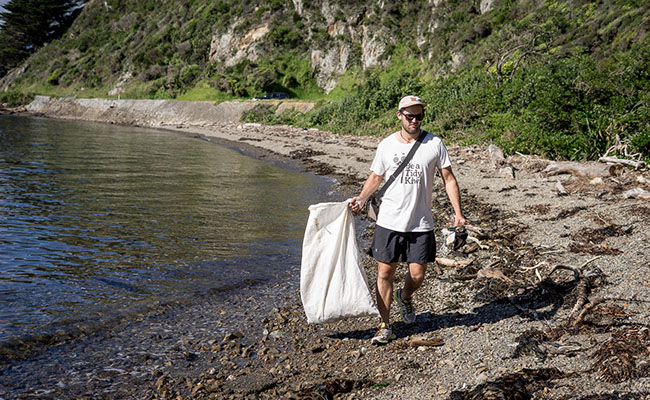
 What motivated you to establish Sustainable Coastlines, and work with groups in the community in Aotearoa New Zealand and the Pacific?
What motivated you to establish Sustainable Coastlines, and work with groups in the community in Aotearoa New Zealand and the Pacific?
In late 2008, my friend Sam Judd returned from overseas with the idea to start a charity: Sustainable Coastlines. I was a couple of years into my work in advertising, and did not hesitate. I was in. During our time together in México, we'd seen horrific waste and pollution, particularly on coastlines. I was hit in the face by a used nappy while surfing. When I came back to New Zealand, my eyes were opened to our own issues. I discovered that our clean and green image is more due to our geographic isolation and low population density than anything else: we are regularly ranked amongst the worst per capita producers of plastic pollution and waste in the world.
Ocean pollution is a risk to people, cultures, ecosystems and economies. Being island nations, with our livelihoods and cultures so intrinsically connected to our moana, this is especially so in Aotearoa and the Pacific Islands. Communities are often passionate protectors of the places they love, and we saw an opportunity to support and empower people with the capability, opportunity and motivation to take action to solve ocean pollution, one step at a time.
 What are the biggest challenges in your work, and the biggest rewards?
What are the biggest challenges in your work, and the biggest rewards?
Staying positive in the face of gnarly, urgent challenges can be tough. Keeping others optimistic, and bringing them on the journey, can be even tougher. Collaboration is a word that gets thrown around a lot in work for our communities and te taiao. Often this gets replaced with "consultation" or "engagement" because authentic collaboration takes time, resource, and willingness. It's true: collaboration can take time (lots of cups of tea) and can be challenging (particularly if you're not open to the perspectives and world views of others). But it's always worth it.
The greatest reward is to see people take our mahi forward and succeed. To hear stories of inspired school students who challenge the status quo, to work with smart business people who shift their strategies for purpose and profit, and to witness empowered politicians who, every now and then, make good, evidence-based decisions.
 What are your aims for your new position in the Sustainability and Climate Change team at PWC?
What are your aims for your new position in the Sustainability and Climate Change team at PWC?
Degradation of nature and loss of biodiversity could be the greatest challenges of our lifetime. I work with some of Aotearoa's largest organisations to solve these problems, create opportunities to do business better, and achieve goals for nature, climate and community. My mahi helps companies understand their connection to nature, the impacts they have on it, and how they depend on it for their very survival. Not only as businesses, but as people. When we better understand nature-related risks, we can prioritise action to reduce them. Better still, we can shift from doing less bad to doing more good, and design strategies that regenerate nature, while future-proofing business.
 What do you think are some of the important things can we do as individuals to help protect our environment?
What do you think are some of the important things can we do as individuals to help protect our environment?
Collaborate. Start local, and research volunteer or conservation groups working in your neighbourhood, suburb, town or city. Reach out to those who are already doing the mahi. Build relationships, and listen to those who have been in that place for longer than you. Ask how, where and when your particular skills, resources and time could be most useful.
Make your money matter. Everything we spend money on can affect nature. Choose products and services that line-up with your own values. If you have a Kiwisaver or other investments, check out what you're funding and – if you're not happy with it – move your money to another provider.
Know that your actions count. Understand your own impacts on nature and improve one thing at a time. The Dalai Lama summed it up well: "If you think you're too small to make a difference, try sleeping in the room with a mosquito." It may sound obvious, but don't try to solve everything at once. There's a lot to do. Pick something you really care about, roll up your sleeves and start today.

In this issue...
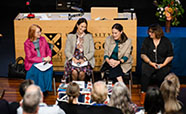
Law alumni celebrate milestones and share expertise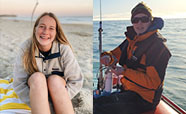
Ecological research boosted by conservation scholarships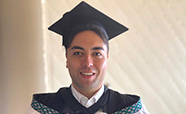
Richness of learning goes beyond the classroom for recent graduate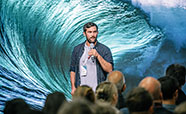
Your Story – Q&A with Camden Howitt, NZ Environmental Hero of the Year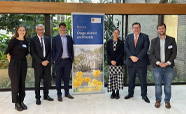
Supporting Otago
Hot Picks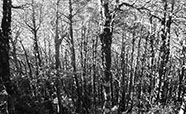
University Snapshot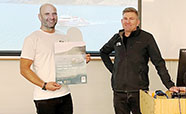
Making a Difference - ASPIRE and Surveying scholarships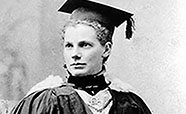
Otago Images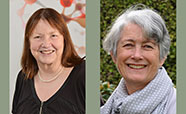
Alumni and academics shine in King's Birthday Honours
